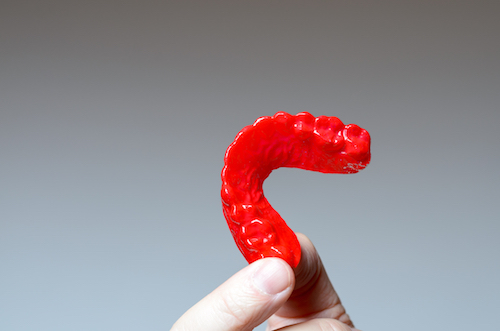 April is National Facial Protection Month, a time dedicated to encouraging children and adults to take necessary precautions to prevent sports injuries of the face and head.
April is National Facial Protection Month, a time dedicated to encouraging children and adults to take necessary precautions to prevent sports injuries of the face and head.
April 2019 - With 5 million teeth either injured or knocked-out per year according to the American Association of Oral and Maxillofacial Surgeons, a safe, effective mouth guard should be part of standard equipment for athletes from an early age. Despite this, a recent study from the American Association of Orthodontists found that 67% of parents admitted that their child does not wear a mouth guard during organized sports.
April is National Facial Protection Month, a month geared towards reminding athletes of the importance of safeguarding their faces, particularly their smiles. While spring is a season that brings an abundance of mouth and facial injuries resulting from sports-related accidents, the risk of these injuries can be reduced with appropriate mouth guard use.
According to the American Dental Association, "mouth guards help cushion a blow to the face, minimizing the risk of broken teeth and injuries to your lips, tongue, face or jaw," in addition to protecting "soft tissues of your tongue, lips and cheek lining."
There are three types of mouth guards: custom-made, mouth-formed ("boil and bite"), and commercial mouth guards. While mouth-formed and commercial mouth guards are readily available and cost-effective, the level of protection and comfort does not match that of custom-made.
“Custom-made mouth guards are precisely made to fit perfectly on teeth," said Anthony Casino, DDS, Clinical Associate Professor and Chief, Division of Oral & Maxillofacial Surgery, Department of Dentistry, Stony Brook University Hospital. "The material is more comfortable and more durable, and it provides the most protection."
Commercial mouth guards are available in small, medium, and large sizes but cannot be modified to fit the athlete's mouth, unlike mouth-formed and custom-made. Mouth-formed mouth guards are boiled in water and then formed to the teeth by applying pressure, providing a better individual fit than commercial mouth guards.
Though custom-made mouth guards are more highly recommended than commercial or mouth-formed mouth guards, Casino insists that both are better than foregoing one. "Athletes should always have protection for their teeth and should use a mouth guard every time they participate in sports," he said.
To schedule an appointment for a custom-made mouth guard, please call Stony Brook School of Dental Medicine's Dental Care Center at (631) 632-8989 between 8:30 AM and 5:00 PM, Monday through Friday. Note that new patients must be screened prior to receiving a mouth guard.
